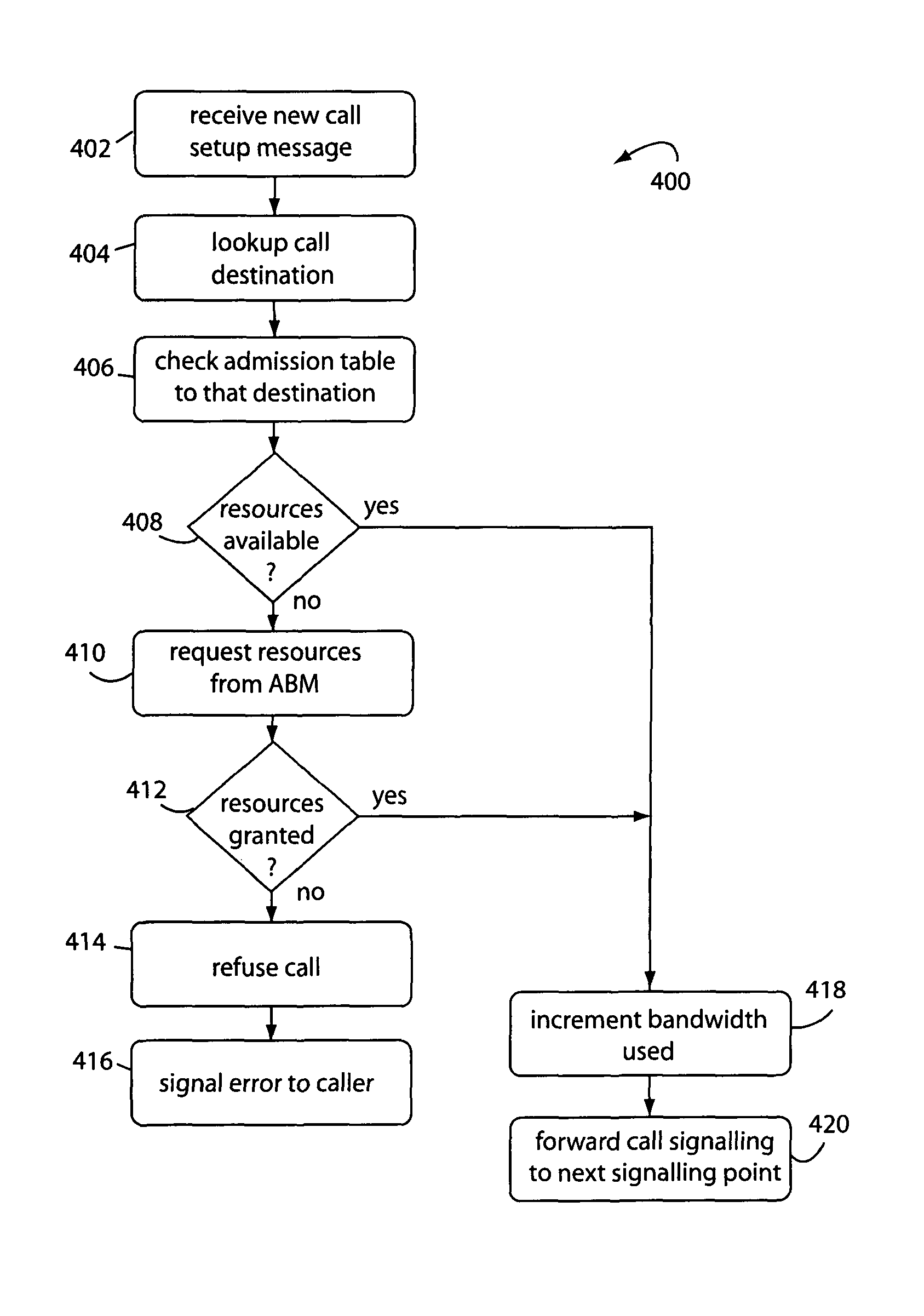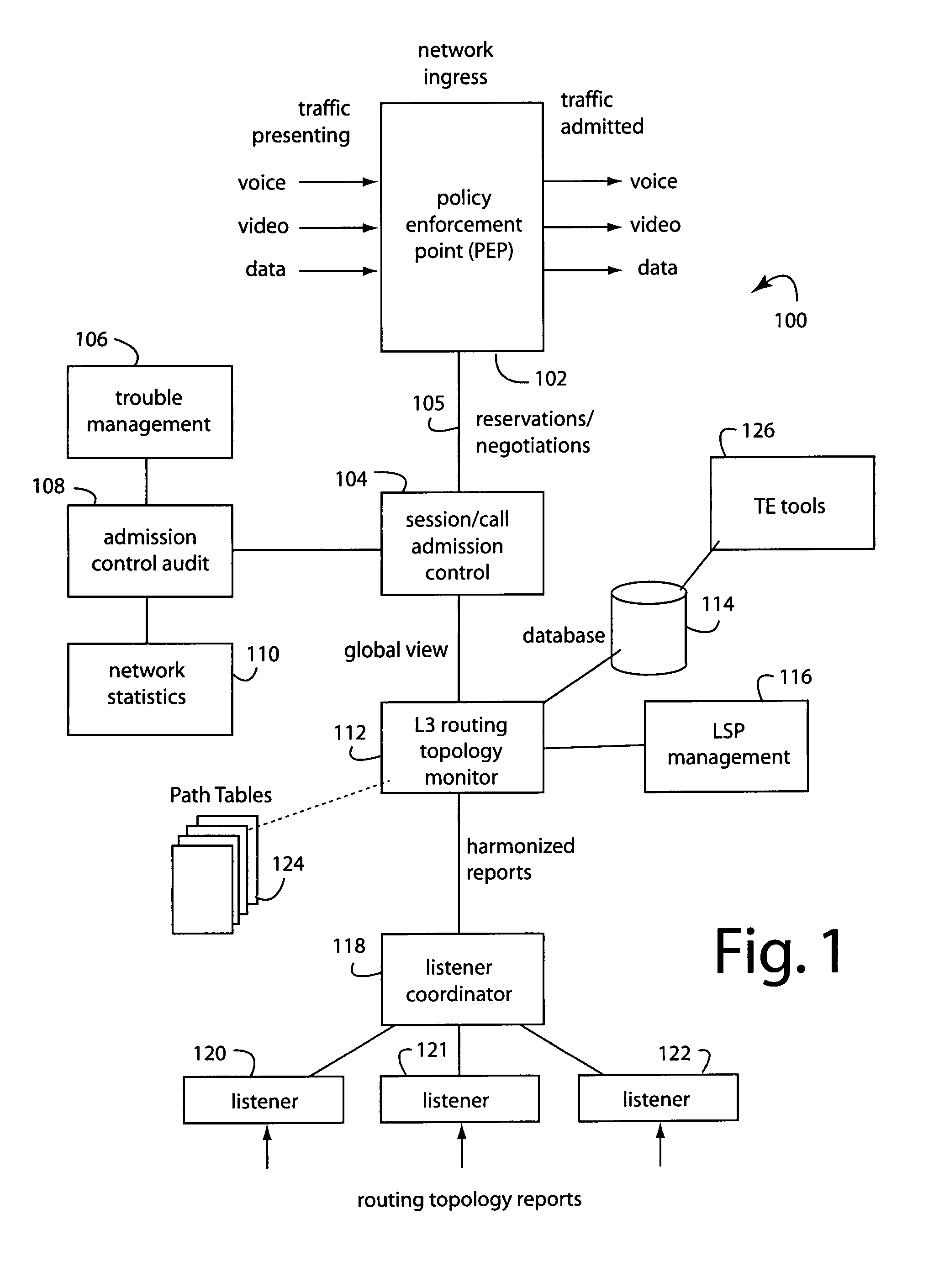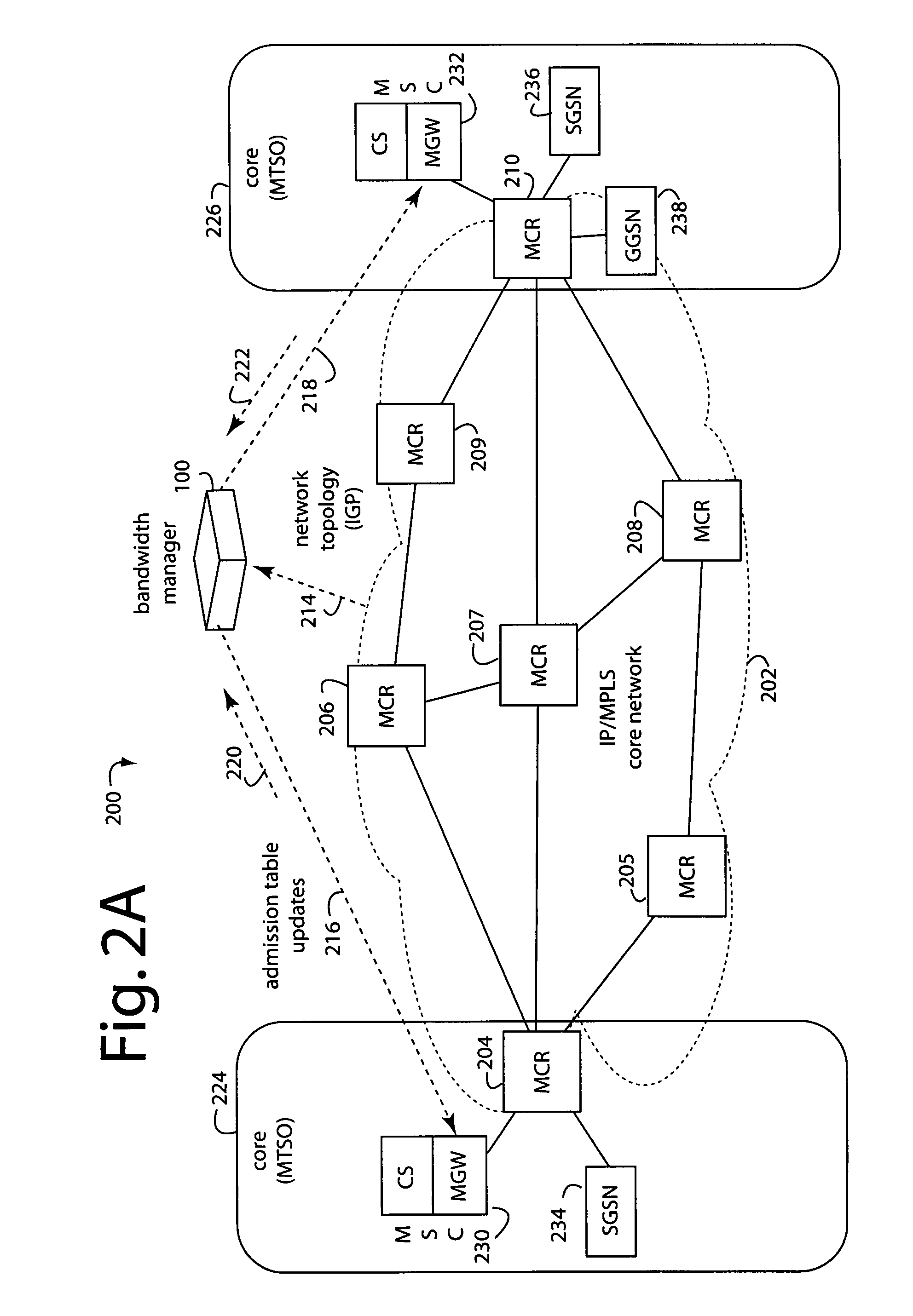Under-assigning resources to video in triple-play virtual topologies to protect data-class traffic
a technology of video and virtual topology, applied in data switching networks, frequency-division multiplexes, instruments, etc., can solve problems such as network congestion, information loss in transmission, and inability to accommodate ideal design, and achieve good planning and provisioning. , the effect of economic cost and effective integrated tools
- Summary
- Abstract
- Description
- Claims
- Application Information
AI Technical Summary
Benefits of technology
Problems solved by technology
Method used
Image
Examples
Embodiment Construction
[0042]FIG. 1 represents an advanced bandwidth manager (ABM) embodiment of the present invention, and is referred to herein by the general reference numeral 100. The bandwidth manager 100 comprises at least one policy enforcement point (PEP) 102, a session / call admission controller (S / CAC) 104, reservations / negotiation traffic 105, a trouble manager 106, an admission control audit function 108, a network statistic function 110, a layer-3 (L3) routing topology monitor 112, a database 114, a label switched path (LSP) manager 116, and a listener coordinator 118 connected to receive point-to-point core-router link reports, e.g., from a plurality of listeners 120-122. The routing topology monitor 112 builds a topology map from comprehensive point-to-point link information from the core-router link reports. It converts the information into abstracted end-to-end path connections listed in a path table 124 for an easy-to-index, single view of the network topology.
[0043]Engineering tools can ...
PUM
 Login to View More
Login to View More Abstract
Description
Claims
Application Information
 Login to View More
Login to View More - R&D
- Intellectual Property
- Life Sciences
- Materials
- Tech Scout
- Unparalleled Data Quality
- Higher Quality Content
- 60% Fewer Hallucinations
Browse by: Latest US Patents, China's latest patents, Technical Efficacy Thesaurus, Application Domain, Technology Topic, Popular Technical Reports.
© 2025 PatSnap. All rights reserved.Legal|Privacy policy|Modern Slavery Act Transparency Statement|Sitemap|About US| Contact US: help@patsnap.com



